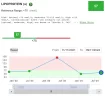Juicedhead
Member
Doc wants to put me on a statin for my colesteral. Any of you guys on one and would you recommend it?
Follow along with the video below to see how to install our site as a web app on your home screen.
Note: This feature may not be available in some browsers.
statins are a controversial topic
Doc wants to put me on a statin for my colesteral. Any of you guys on one and would you recommend it?
I appreciate the lipid info you brought to this forum...I've actually saved a few of your posts just to refer back to in the past.There is no actual controversy around statins. Only misinformation
.
I'm afraid to ask what your doctor is recommending and I presume also that your doctor didn't order a lipid panel that included ApoB, so I'll bite, what's your LDL-C? Are you hypertensive? HbA1C? Age? Family history of hypercholesterolemia, ASCVD (atherosclerotic cardiovascular disease) or an MI (mycardial infarction or "heart attack") at an early age? Have you had a CT-CAC (coronary artery calcium) test?
In short, certain statins at low to moderate doses are excellent tools to prevent the progression of ASCVD. Most doctors follow the outdated standard of care recommended by the American College of Cardiologists and lean heavily on statin mono-therapy at maximal doses.
They work well in a poly-pharmacy approach that uses complementary interventions to control LDL. A statin, typically rosuvastatin, dosed in the sweet spot of the dose response curve in concert any number of other complementary interventions like ezetimibe, bempedoic acid, and a PCSK9 inhibitor like Repatha work extraordinarily well as evidenced by the numbers @juicebro demonstrated.
I use all the above, my LDL-C is 17mg/dL and my ApoB is 32mg/dL per my last lipid panel.
Some statins will cause you joint pain, Rosuvastatin is great and seems to not do this. Let us try to summon the expert @Ghoul
I appreciate the lipid info you brought to this forum...I've actually saved a few of your posts just to refer back to in the past.
The insane thing is even a lot of cardiologists act like they have no idea (or really have no idea) on what this data is.
Do you believe the Coronary Artery scan is worthwhile? (
I went from a decidedly awful lipid panel, runs in the family, to all numbers within range after a year on Tirz and 5 months on Tesa.

Did you know your ApoB?
High LDL, calcium score of 571, cardiologist ran all the tests, including the nuke. Didn’t get apo-b done, though. Sounds bad until I tell you my mother’s score is 1300+, and just turned 77. Obviously genetic, but, I’d sure love to take something the reduce that burden. Been reading about possibly colchisine and maybe repatha as adjuncts to this current protocol.One day, I'm going to get off my ass and write that 2k word article on the topic to save myself from regurgitating this stuff over and over.
This is something that's hard to take. Folks hardly have time to listen to a lecture from me with the reams of scientific data and opinions from experts in the field. When I point out that doctors seem to know fuckall about preventing ASCVD, they tend to look at me like an anti-vaxxer or something.
ASCVD is the #1 killer in this country and it is *well* understood. Nobody has to die from it and yet your every day general practitioner is fucking lost on the topic and even the AHA and the ACC are giving out bullshit advice.
Yes. People sometimes write that "LDL doesn't matter" and in some ways it doesn't. There are lean mass hyper responders with elevated LDL, exceptionally healthy lifestyles and no plaque burden. They're outliers for sure, but that leads folks to draw an incorrect conclusion as they're unable to distinguish necessary and sufficient. LDL, more specifically ApoB is necessary for the development of plaque burden, but is not sufficient. That requires inflammatory conditions and a few other things. There's some recent science on this topic, that's exciting but I'm not going to parrot it at present. However, it is true, that people with high LDL aren't guaranteed to die of ASCVD. They're just more likely. There are certain genetic variables that may be protective.
With all that said, if you suspect ASCVD as a result of high LDL or ApoB, a CT-CAC is a cheap way to confirm that plaque burden is present, the risk is real, and an aggressive intervention is warranted.
With high LDL, I'd recommend one to someone in their 30s. A non-zero number beyond the margin of error is a huge red flag. For everyone else, maybe with marginal lipids, definitely aim to get one in one's 40s. Again, a non-zero number is a red flag.
From there, any calcium score north of 100 is going to merit a more serious approach beyond lipid management. Find a good cardiologist, maybe get a CT-A, FFR, or some other test to assess blood flow.
Yup, definitely not covered by insurance in the US. My wife has a practitioner who has actually been running it in her for years. I always got annoyed about the notice from insurance about a test I was paying for out of pocket and wondering wtf the doctor couldn't justify the test to insurance...but now I'm just happy she had someone actually closer to up to speed on modern medicine...lolFunny, my doctor ordered it for my next blood test and I just got a letter from my insurance carrier denying coverage because of its "unproven clinical benefit", lol. I'll have it done nonetheless of course.
veryone should find out there Lp(a) status one time as well...but I'm not gonna tread on egrubermans wheelhouse here.

I can confirm this. I'm on 2.5mg Rosuvastatin and 5mg Ezetemibe. It dropped my ApoB from 99 to 73. I just added 90mg Bempedoic Acid to see what it does. With such low doses it leaves plenty of room to adjust any of them upwards for further lowering.Note that 85% of the efficacy of Rosuvastatin comes at 25% of the max dose (40mg). It's hard to even parse the lower doses, but even a few milligrams a day or every other day has substantial efficacy.
Do you take them separately or you have a combo pill with those dosage? Here where I live they sell 5mg rosu/10mg ezetemibe I was thinking of splitting those pills but it's really not recommended to split combo pillsI can confirm this. I'm on 2.5mg Rosuvastatin and 5mg Ezetemibe. It dropped my ApoB from 99 to 73. I just added 90mg Bempedoic Acid to see what it does. With such low doses it leaves plenty of room to adjust any of them upwards for further lowering.

